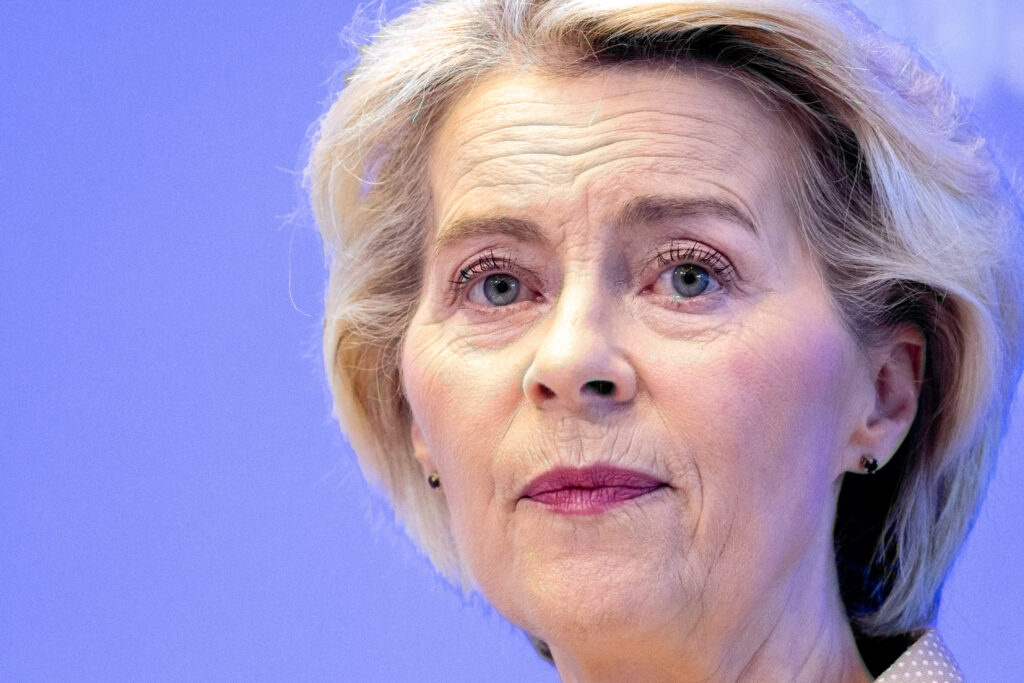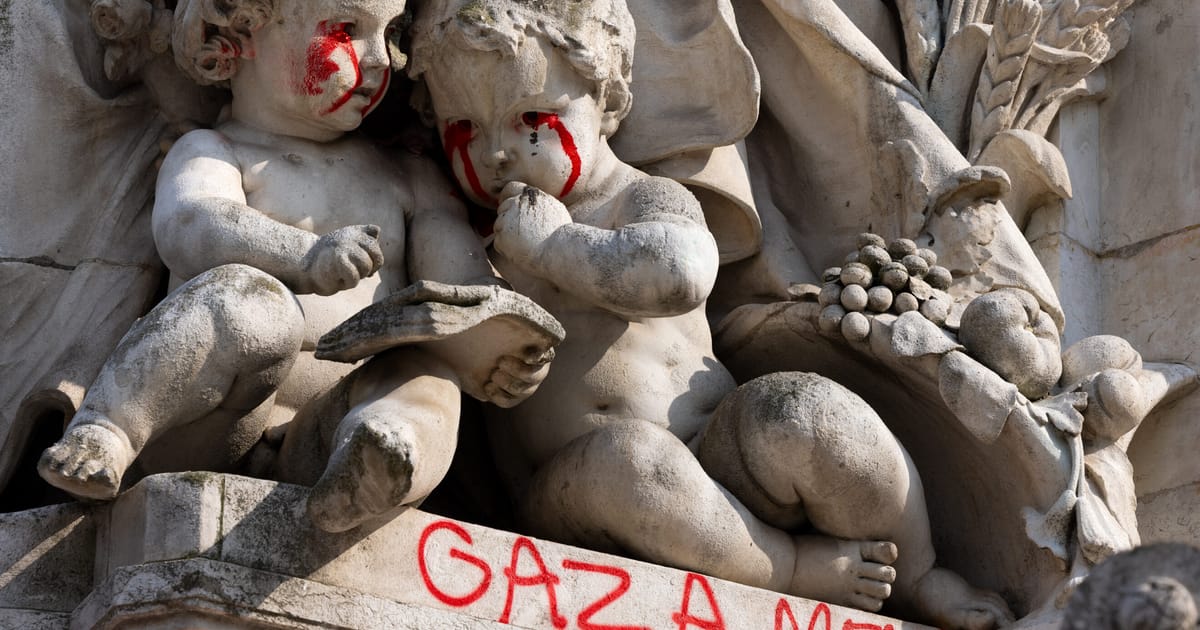For Germany’s Merz, the question of how to handle Israel is miserably difficult. The Nazi legacy of the Holocaust casts a long shadow over German politics: On Monday night, an emotional Merz fought back tears in a speech at a synagogue in Munich denouncing a new wave of antisemitism.
“In politics and society, we have turned a blind eye for too long to the fact that a considerable number of the people who have come to Germany in recent decades were socialized in countries of origin where antisemitism is virtually state doctrine, where hatred of Israel is taught even to children,” Merz said.
Countries that fail to act to stop genocide can potentially be treated as complicit under the Genocide Convention, a fact that could theoretically push more European governments to support the EU’s sanction plans.
 Nobody in Brussels believes Friedrich Merz is about to buckle and endorse Ursula von der Leyen’s plans to suspend the EU’s trade deal with Israel. | Omar Havana/Getty Images
Nobody in Brussels believes Friedrich Merz is about to buckle and endorse Ursula von der Leyen’s plans to suspend the EU’s trade deal with Israel. | Omar Havana/Getty Images
Yet for Merz, domestic considerations are likely to make it impossible for his government to endorse the assessment that genocide is under way, still less to take concrete action to curtail Israel-EU trade.
Katja Hoyer, a German-British academic and author of Beyond the Wall, said Merz’s relations with his own Christian Democrats will likely weigh on his thinking. “Surveys suggest that Merz has the majority of the German public on his side when it comes to a tougher stance on Israel, but his problem is the backlash he’d get from his own party,” she said.
“The CDU/CSU has long been the home for those who staunchly support Israel. For many, this is an integral part of the party’s soul. Already under pressure for various broken promises and for having disappointed conservative purists on a number of issues, I don’t know if Merz will feel that he can survive a policy change in this area unscathed.”
As for von der Leyen, the pain of Europe’s paralysis is likely to continue.
Karl Mathiesen contributed reporting.

